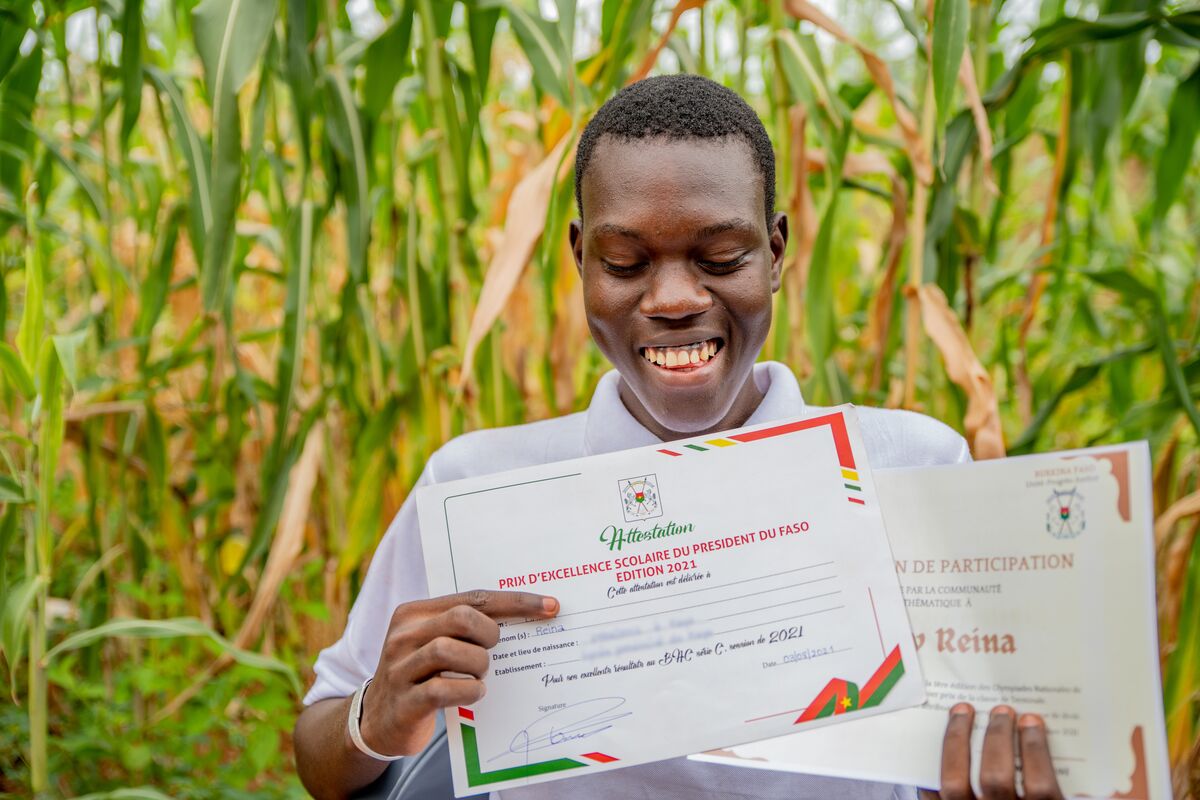Official Country Name: Burkina Faso
Capital City: Ouagadougou
Population: 19 million
Languages: French
Life expectancy: Male 57 years, Female 61 years
Population with access to safe drinking water: 47%
Infant mortality rate: 52 deaths/1,000 live births
Percentage of children under the age of 5 underweight: 16.4
Adult literacy rate: Male 55%, Female 38%
Religion: Approximately 63.8% of the population are Muslim, 20.1% is Roman Catholic, 9% practice indigenous beliefs, and 6.2% are Protestant.
Percentage living on less than $2.15 a day: 30.5%
World Bank and 2022 Report on International Religious Freedom by the Office of International Religious Freedom, U.S Department of State
Burkina Faso has an ancient history, and artefacts from Neolithic cultures have been found in the north. The Bobo, Lobi, and Gurunsi people groups are the earliest known inhabitants of the country.
Burkina Faso, previously known as Upper Volta, was part of French West Africa from 1896 until 1960. When independence was proclaimed, the new constitution was established with an executive president elected for a five-year term.
In 1984, the country changed its name to Burkina Faso, meaning “the country of honourable people.”
Visitors to the country today always receive the warm welcome you’d expect from such an aptly named nation.
The French influence is still very evident amongst more than 60 different ethnic groups across the country. French is the official language and is used in schools, the army, government, and the media. However, many people in rural communities speak no French at all.
There is also great disparity between cities and the countryside in terms of the provision of health, education, and general infrastructure.
Art
Burkina Faso has more than 60 ethnic groups, each with their own distinct social and cultural customs. Burkina Faso is a leader in African art and culture and hosts the largest craft market in Africa. Art made by the Mossi, Bobo and Lobi ethnic groups are the most famous. The Mossi are known for their antelope masks; the Bobo make large butterfly masks; and the Lobi carve wood.
Music
Each ethnic group brings their own unique folk music customs. The Semaine Nationale de la Culture, held every two years since 1983, is a music festival that has helped produce the country's few stars, including Kaboré Roger, Simporé Maurice and Black So Man. The Mande people of the southwest are known for balafon (xylophone) music, while the Mossi are known for their griots - storytellers who often use music to share tales and keep traditions alive. In the north, the Fulbe use complex vocal techniques and percussion.
Rakiire
Because of the diversity of ethnic groups in Burkina Faso, many different cultural practices are observed. One of the most important and widespread customs is Rakiire, where insults are used in jest by friends or families.
Language
French: Bonjour (Hello), Au revoir (Goodbye), Comment-allez vous? (How are you?), Je vais bien, merci. (I'm fine, thank you.) Mossi: Yamb kibaré? (How are you?), Laafi bala, La yamba? (I'm fine, and you?)
Sports and Games
Football, handball, cycling, basketball, and boxing are popular in Burkina Faso.
Typical Foods
Most food in Burkina Faso comes with sauce. Staple foods are sorghum, millet, rice, maize, peanuts, potatoes, beans, yams and okra. Meat is not eaten often in the villages. Instead, villagers eat eggs and fish.
Public education is not free, and many parents cannot afford to send their children to school. There also is a shortage of schools in the country and even those who can afford to send their children may not be able to. According to UNICEF, only 81 percent of students reach the fifth grade, which is the equivalent of year six.
However, education is very important for the people of Burkina Faso as the only vehicle out of poverty. In the past, educating boys was considered more important than educating girls. Government policy has tried to redress the gender imbalance.
Through both formal and non-formal education, all are taught to be respectful, polite, obedient, courageous, and hard working. Within the classroom, responsibility, family values and dignity are all emphasized.
Source: UNICEF
Approximately 63.8% of the population are Muslim, 20.1% is Roman Catholic, 9% practice indigenous beliefs, and 6.2% are Protestant. There is no official state religion and the government neither subsidises nor favours any religion. The constitution provides for freedom of religion and the government does not tolerate its abuse.
Islam, Christianity, and traditional indigenous religions are practiced freely and foreign missionary groups can visit and operate within the country. The law allows religious groups to express themselves freely through publications and broadcasts unless the judicial system determines that they are harming public order or committing slander.
Religious instruction is not offered in public schools. However, there are Muslim, Catholic and Protestant primary and secondary schools. The government reviews the curriculum of these schools to ensure they offer the full standard academic curriculum.
Statistics from the International Religious Freedom Report, released in 2022 by the Office of International Religious Freedom, U.S. Department of State
